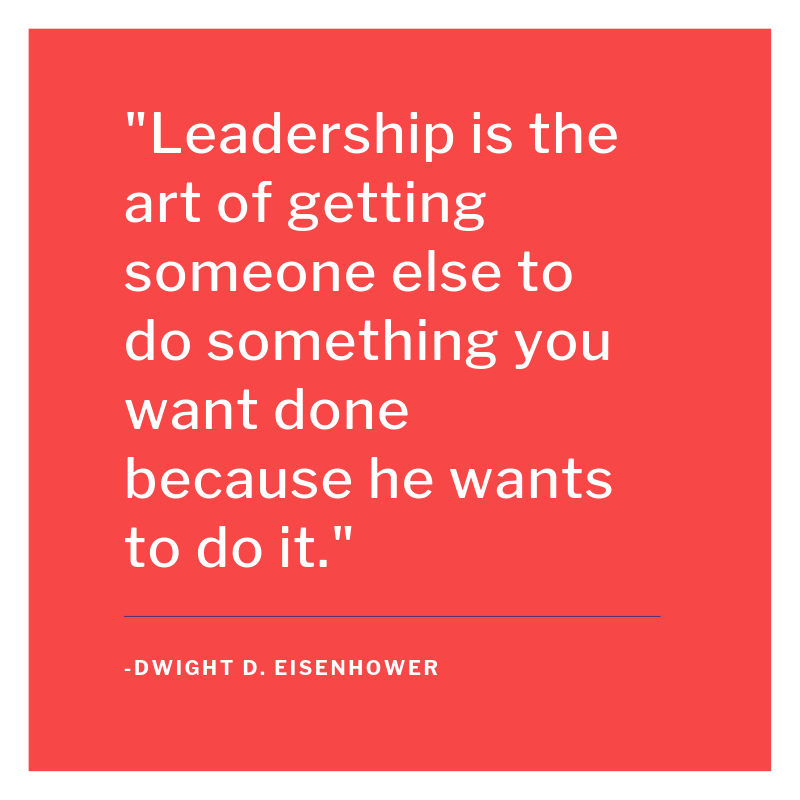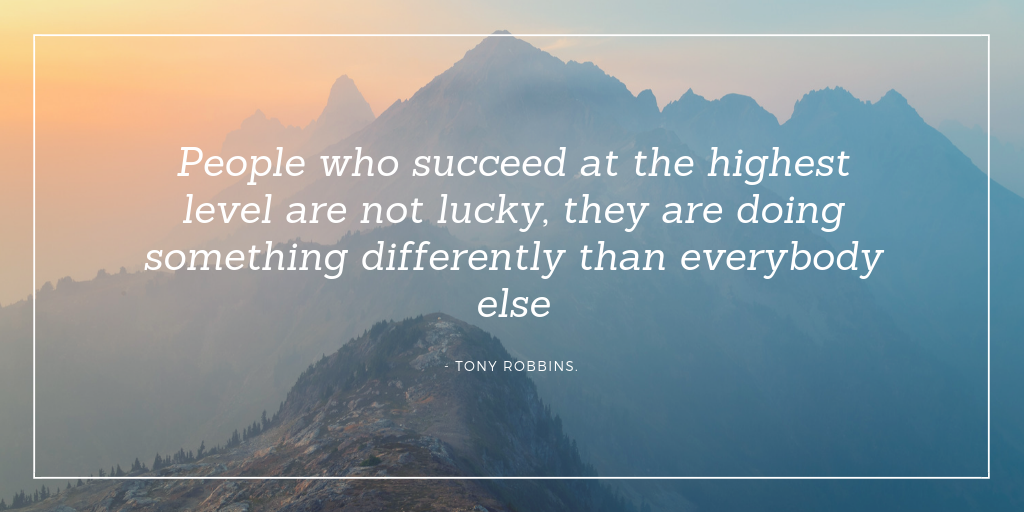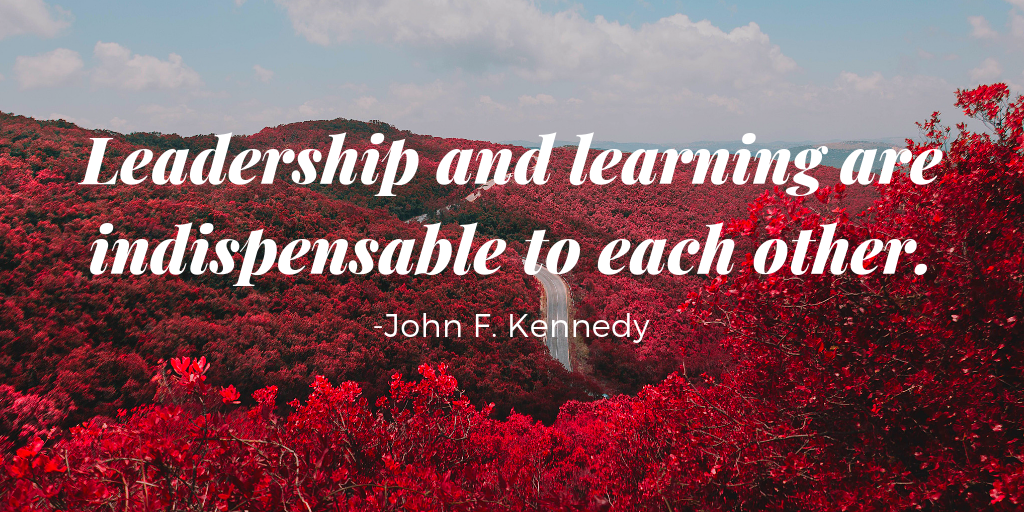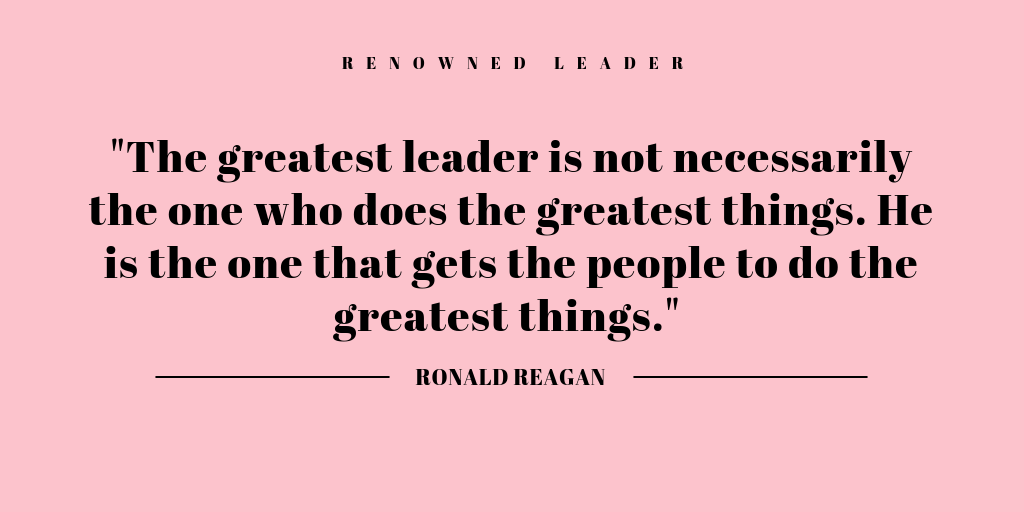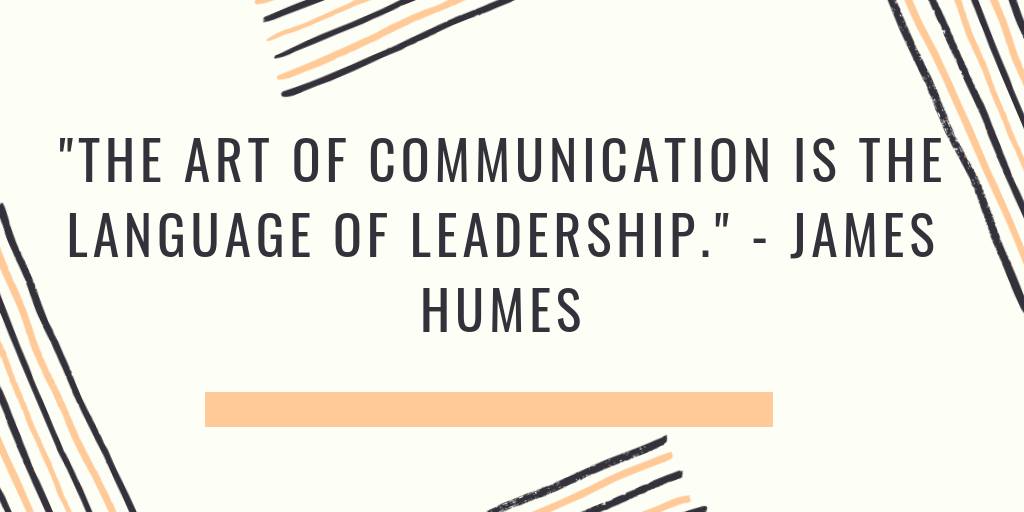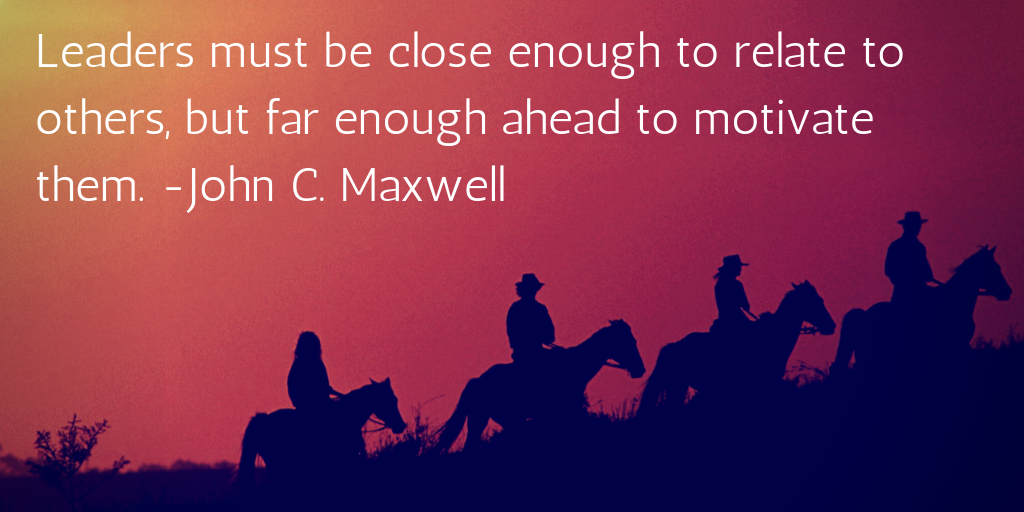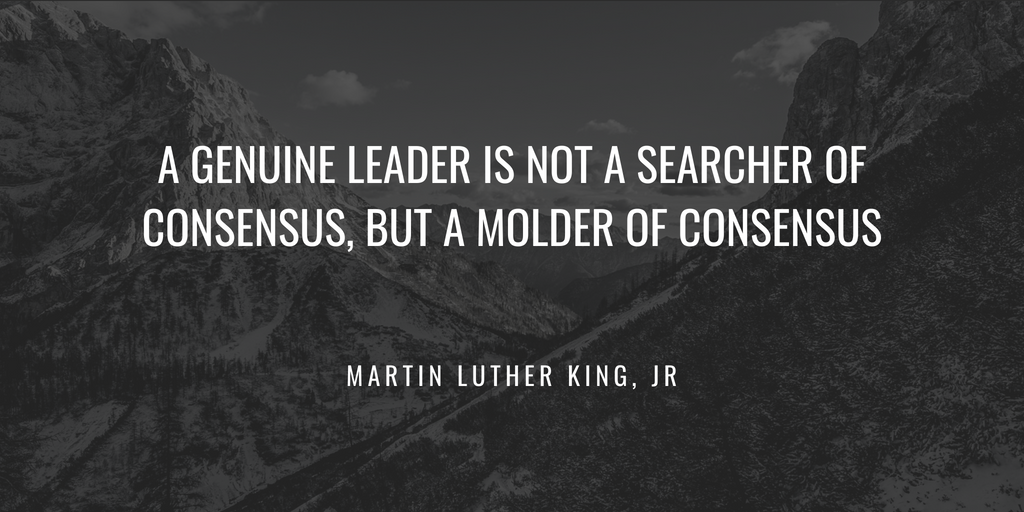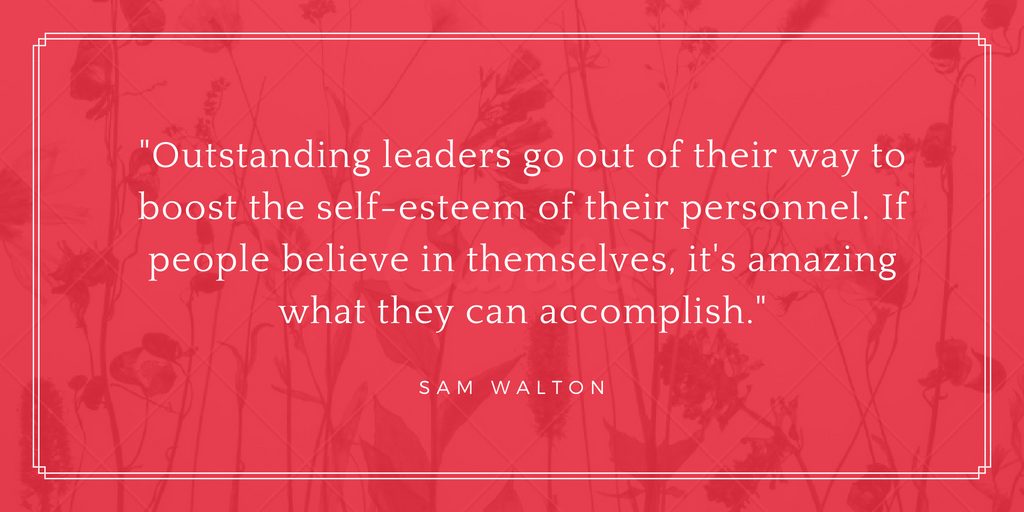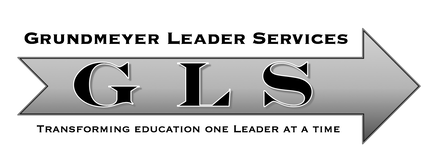December 10, 2018
Fitting Five: Your bi-weekly guide to education leadership initiatives and success stories from across the nation.
Do you have resources to share? Send them over to [email protected].
Fitting Five: Your bi-weekly guide to education leadership initiatives and success stories from across the nation.
- Art, science both vital parts of leadership. The leaders of the next industrial-technological revolution are those who will have expertise in seemingly unconnected knowledge domains of STEM and humanities. This is a difficult balance to achieve, but I have seen great success in my career with teams that have diversity of thought and background. Professional reading is a great way to encourage diversity of thought in your teams. (Daily Republic)
- Crosby: New East Aurora superintendent talks data-driven leadership, push for reading and vision for a better district. The plan is that by fall 2019, all students in grades 9-11 who score 70 percent or below on national reading assessments would be required to take reading classes. And yes, that could interfere with electives, courses not required for graduation, that kids like to take. Which is what led to a push-back among some of the teachers, who felt these electives not only keep kids engaged but are the reasons some bother showing up for school. And that, in turn, would lead to lower attendance levels, which is already a district problem. (Chicago Tribune)
- How women manage the gendered norms of leadership. We conducted extensive interviews with 64 senior women leaders (all at the VP level or higher) from 51 different organizations in the United States: CEOs, general managers, and executives across functions, working in various industries. We found that there are four paradoxes, all stemming from the need to be both tough and nice, that these women confront. We also identified five strategies they use to manage them. (Harvard Business Review)
- Human leadership: what it looks like and why we need it in the 21st century. Transformative leadership is not about being perfect, nor it is about pretending something we are not, it is about putting effort toward being our best selves and bringing that effort forward every day to inspire someone. We’ve made a lot of progress in our people leadership and practices over the years, but a lot of inconsistencies and behaviors of damage have continued. (Forbes)
- How to push STEM forward in your district. This new podcast, Edu:nation, takes a look at STEM and how to truly create authentic learning environments for every student. (Edu:nation).
Do you have resources to share? Send them over to [email protected].
November 26, 2018
Fitting Five: Your weekly guide to education leadership initiatives and success stories from across the nation.
Do you have resources to share? Send them over to [email protected].
Fitting Five: Your weekly guide to education leadership initiatives and success stories from across the nation.
- Are you managing technology or is technology managing you? Technology is a wonderful thing, and with enhancements and new technologies emerging, the possibilities are endless. However, no technology will ever be beneficial if users allow the technology to restrict them. Technology should be an aid. It should assist humans, and become a tool that enhances human capability. (Education Conference Network)
- In government, there’s a big difference between power and leadership. There is one inherent quality that is fundamental to leadership: courage. We value and even admire people who work hard and play by the rules, but leadership requires something different. Leaders take on the problems of others and are willing to risk ridicule, derision and the loss of position or reputation to overcome those problems. That generally means disrupting a system; some current winners may become losers. There will be pushback by people who benefit from the existing order and have the power to inflict pain. In guiding Rhode Island through two rounds of badly needed pension reform, first as treasurer and now as governor, Gina Raimondo endured plenty of pushback and pain, but she pressed on relentlessly. (Governing)
- Six tips to refine your leadership style according to a brain expert. Our brains try to stay one step ahead by predicting what is going to happen next and then preparing the body to react. Therefore, our perceptions are often based on past experiences. This can be problematic when we essentially get stuck in a certain behaviour, and it can be tough to break free of that routine. (Forbes)
- Leadership and U-turns. Leaders are pathfinders; they do not take diversions midway but find strategic ways to continue on the journey even if they face the odds. The height of foolishness is to justify whimsical detours as the trademark of leadership. (The International News)
- Ensuring a mixed bag of talent for success. With progressive organisations across Asia acknowledging the value of having diversity in its myriad forms such as gender, generations, experience, and more, the workplace has never shown as much promise for building inclusivity as now. (Human Resources Online)
Do you have resources to share? Send them over to [email protected].
November 12, 2018
Fitting Five: Your weekly guide to education leadership initiatives and success stories from across the nation.
Fitting Five: Your weekly guide to education leadership initiatives and success stories from across the nation.
- Why humble leaders make the best leaders. When hiring for a leadership role, you may be overlooking one of the most important traits of top performers: humility. Sounds a bit counter-intuitive, doesn’t it? Humility is not typically the first trait that comes to mind when you think about great business leaders like Steve Jobs, Jeff Bezos, Elon Musk, or Bill Gates. Visionary, courageous, charismatic—these are the qualities most of us associate with great leaders. The idea of a humble, self-effacing leader often doesn’t resonate. (Forbes)
- Car crash checklist and resources for teens. With teens driving around your schools, get this checklist for steps they need to take if they are ever in a car accident. (Sutliff & Stout)
- The fundamentals of leadership still haven’t changed. We interviewed over forty successful leaders from a variety of organizations (corporate, non-profit, startup), across different industries. We then reviewed several decades worth of articles from the Harvard Business Review to understand the recurring messages from academics and practitioners about what leaders should do. Our conclusion from this research, and from our own years of experience as leadership and organizational advisors, was that the best leaders with the most outsize impact almost always deploy these six classic, fundamental practices. (Harvard Business Review)
- Leadership ‘key’ to personalized learning success. Personalized learning is flourishing in K-12 schools, but needs support from top leadership to succeed, state education leaders told an audience at a national conference this week. Educators attending the State Education Technology Directors Association conference in Washington D.C. praised personalized learning for its benefits to students while recognizing the importance of administrative support for the model’s durability and scalability. (EdScoop)
- Where does Iowa stand when it comes to education funding? Iowa's per-student funding stands at $6,736 this school year. Combined with other state and federal funds that amount is closer to $11,330, according to 2017-18 department of education data. Iowa ranks toward the center nationally when it comes to spending per student, trailing neighboring states such as Illinois, Minnesota, Wisconsin and Nebraska. (The Des Moines Register)
October 29, 2018
Fitting Five: Your weekly guide to education leadership initiatives and success stories from across the nation.
Fitting Five: Your weekly guide to education leadership initiatives and success stories from across the nation.
- Even a 10-minute walk may be good for the brain. Ten minutes of mild, almost languorous exercise can immediately alter how certain parts of the brain communicate and coordinate with one another and improve memory function, according to an encouraging new neurological study. The findings suggest that exercise does not need to be prolonged or intense to benefit the brain and that the effects can begin far more quickly than many of us might expect. (New York Times)
- ISTE releases first-ever multi-disciplinary K-12 STEM guidelines. For the first time, the International Society for Technology in Education is providing guidelines for all K-12 teachers interested in STEM and computer science via its new computational thinking competencies standards meant for educators that don’t normally use computers in their lesson plans. (Edscoop)
- 15 entrepreneurs share the surprising leadership lessons they wish they’d learned sooner. Good leadership is essential to any organization, and new managers are often excited to learn the ins and outs of effectively leading a team. However, nobody knows everything about being a leader when they're just starting out, and sometimes you learn some surprising lessons along the way. (Forbes)
- Is your leadership style holding back your team? When leaders coach rather than attempt to control, people become more resourceful and find their own answers. Teams work more effectively together because they engage in dialogue. They listen and ask questions rather than tell others what to do. They see resistance as an opportunity to explore other perspectives, rather than as a threat. The nature of conversations between people changes. Interactions become more positive. (SmartCompany)
- Google evaluates leadership skills using these 13 questions. How would you rank? (And how would your employees rate you?) Every leader wants to be a great leader. But what makes a leader great? That's a question Google spends considerable time and effort trying to answer. (It only makes sense that one of the most analytical companies in the world puts some of its analytical horsepower into determining how great teams are built and led.) Over time, the company determined the key behaviors of its best team managers. And then Google started asking team members to answer the following questions, using a 1 (strongly agree) to 5 (strongly disagree) scale. (Inc)
October 15, 2018
Fitting Five: Your weekly guide to education leadership initiatives and success stories from across the nation.
Do you have a resource to share? Send it over to [email protected]
Fitting Five: Your weekly guide to education leadership initiatives and success stories from across the nation.
- The emotional intelligence we owe students and educators. When a school weaves social-emotional learning throughout its curriculum and culture both helping students tune in to emotions and teaching "emotional skills" for handling difficult feelings students and teachers thrive. Brackett discusses ways to develop the emotional intelligence of everyone in the school and lists five key emotion skills at the heart of RULER, a program created by the Yale Center for Emotional Intelligence to infuse SEL throughout a school or district. He briefly describes RULER's tools and strategies. (ASCD)
- Help your team understand what data is and isn’t good for. But when it comes to uncovering the motivations and rationale behind individual behaviors within a social system, data can only do so much. It can guide the discovery of a problem, but it won’t determine the solution. In other words, data analytics can tell you what is happening, but it will rarely tell you why. To effectively bring together the what and the why of a problem and its cause, in order to find a probable solution, leaders need to combine the advanced capabilities of big data and analytics with tried-and-true qualitative approaches such as interviewing groups of individuals, conducting focus groups, and in-depth observation. (HBR)
- Top tools for learning 2018. The Top Tools for Learning 2018 list was compiled by Jane Hart at the Centre for Learning & Performance Technologies from the results of the 12th Annual Digital Learning Tools Survey, and released on 24 September 2018. [Find out more about the survey and read Jane’s analysis of this year’s list.] (Toptools4learning)
- The elastic brain: the most important thinking habit nobody taught you. The ability to stretch beyond your core strengths when necessary and quickly rebound back to your core skills and discipline is a desirable trait. Elasticity is essentially responsiveness to change in an ever-changing world. To survive in an environment of constant stimulation and rapid change, elastic thinking is essential. (Medium)
- After further review: four keys for handling leadership errors. As business leaders, we make critical decisions daily, ranging from simple things such as setting meeting agendas to more impactful calls related to vision, strategy and people. The most successful leaders get it right all the time— except for when we don’t. So, the question becomes: how do we handle a leadership error? Here are four keys to help turn that mistake into an opportunity. (Forbes)
Do you have a resource to share? Send it over to [email protected]
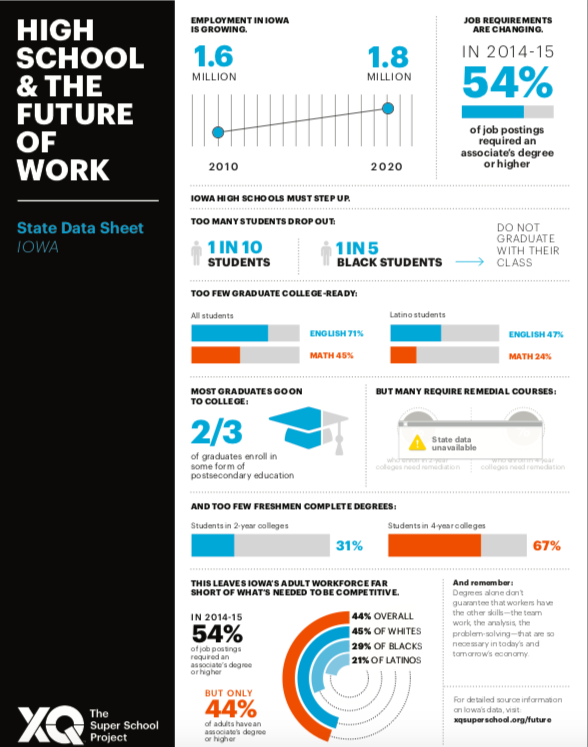
October 1, 2018
Fitting Five: Your weekly guide to education leadership initiatives and success stories from across the nation.
Do you have a resource to share? Send it over to [email protected].
September 17, 2018
Fitting Five: Your weekly guide to education leadership initiatives and success stories from across the nation.
Do you have any resources to share? Send them over to [email protected] to share with our readers.
Fitting Five: Your weekly guide to education leadership initiatives and success stories from across the nation.
- Building a strong school culture. With foresight, intentional action, and reflection, principals can shape the shared values of their school. Everything a leader does-her statements and philosophy, reactions to key events, energy, and interaction style - influences culture in a powerful way. (Harvard)
- Is the big standardized test a big standardized flop? Since No Child Left Behind first rumbled onto the scene, the use of a Big Standardized Test to drive accountability and measure success has been a fundamental piece of education reform. But recently, some education reform stalwarts are beginning to express doubts. (Forbes)
- The edtech pilot framework. The Edtech Pilot Framework from Digital Promise provides a step-by-step process to help education leaders and technology developers run successful educational technology (edtech) pilots. Check out each step to hear from district leaders, learn helpful tips, and find relevant tools and resources. (Digital Promise)
- Leaders need to read the mood as well as the data. No more can leaders rely on "Western Reductionist thinking", or the tendency to apply narrow logic, data, key performance indicators and quantitative thinking. As Malmgren and Lewis point out, there is nothing wrong with this analytical approach. It is just that in an age of constant surprises it is not enough. This so-called left-brain thinking can miss the insights that come from the right-brain thinking that focuses on the irrational - things like belief, faith and trust. As Malmgren put it in the interview, "mood matters as much as the math". (Forbes)
- Leadership: why slowing down will help you speed up. We’ve somehow confused busyness with effectiveness. We’ve come to see them as the same when, in reality, they are polar opposites. I fundamentally believe there are two parts to a leader job. One is to deliver a result for the organisation that employs us, and the other is to look after the people that we have the privilege and responsibility to lead. (Trainingzone)
Do you have a resource to share? Send it over to [email protected].
September 17, 2018
Fitting Five: Your weekly guide to education leadership initiatives and success stories from across the nation.
- K12 leaders: hand over the reigns. The current education system, which places much of the control of learning with the school system, not the learner, will under prepare students for that future, Ziegenfuss says. The world is changing through technology, he says. We’re going to have to make more choices on our own. Learner-centered education is built on that starting with the learner and having them decide what path they want to take.
- Great leadership begins in your mind: how to master your manager mindset. Your mind is the place where promises and failures are planted. Your past experiences live in your mind, and the ability to be successful starts with how you think. There are great leaders in in the right positions, but they are being held back by their own limiting beliefs. Even a great strategy can’t succeed without the right mindset to implement it.
- What research from Google can teach us about great leadership. Google is one of the most successful companies in the world. So, as a smart leader in an organization, the question you may want to think about is, how can this list help you in your organization today?
- 5 leadership strategies that cultivate cognitive diversity. But obscured visibility is only a small part of why cognitive diversity is frequently overlooked. For instance, many organizations have a primary or dominant style (frequently following that of senior leaders). Hiring decisions are made in the image of these leaders. And those in the organization are subtly (and not so subtly) reinforced when emulating that style. As a result, we unintentionally contribute to cultural Darwinism -- survival of the similar.
- Management according to the leadership book. Don’t blindly trust leadership books. Instill leadership techniques with a healthy dose of pragmatic management and you’ll never be accused of being a robot.
Do you have any resources to share? Send them over to [email protected] to share with our readers.
September 4, 2018
Fitting Five: Your weekly guide to education leadership initiatives and success stories from across the nation.
Do you have a resource to share with your fellow district leaders? Send it to [email protected] and be sure to subscribe to get Fitting 5 in your inbox every week!
Fitting Five: Your weekly guide to education leadership initiatives and success stories from across the nation.
- 5 Things new Principals (and principals that are new to their school) should never do their first year on the job. Becoming a principal for the first time, or moving to a new school, is an exciting venture for any educator. Principals must do everything in their power to set themselves up for success. According to the 2012-13 principal staffing survey from the US Department of Education, over 20 percent of principals left their schools and over 70 percent of principals have less than five years at their current schools. In 2014, a School Leaders Network report found half of new principals leave by their third year. In 2012, RAND researchers found that when principals leave, the school underperforms the next year.
- How can schools best prepare students for the future? Give them real work to do. The public education system in the US has been the same for over a century, with teachers talking at students and giving them tests. But at Iowa BIG, teens address their community’s most pressing needs and the results are benefiting them and their town. (Shoutout Cedar Rapids!)
- Kids are so over-scheduled that doctors are being told to prescribe play. For many parents, back-to-school season incites a mad scramble to organize kid’s activities from music lessons to math club and after-school tutoring. But a new policy report from the American Academy of Pediatrics suggests we’d do better to pencil in big blocks of time devoted to nothing but free play.
- The case for coaching leaders. Coaching is so much more than the result of a game, match, or competition. Â It is really about helping kids develop many of the qualities and characteristics in life that cannot be measured with an actual number such as leadership, commitment, perseverance, motivation, self-discipline, teamwork, resilience, enthusiasm, and reliability. The positive impact of a good coach can be felt for years and lead to success in both professional and personal aspects of life.
- Higher education and K-12 form partnerships to help educators and learners. In the past, partnerships between colleges and K-12 schools often centered around high-school-to-college transitions or programs that enable students to earn advanced college credit. Today’s collaborations focus more on social responsibility. That can take the form of formal research studies, professional development, or joint technology and curriculum initiatives.
Do you have a resource to share with your fellow district leaders? Send it to [email protected] and be sure to subscribe to get Fitting 5 in your inbox every week!
August 20, 2018
Fitting Five: Your weekly guide to education leadership initiatives and success stories from across the nation.
Have you created leadership resources you’d like to share? Send them over to [email protected].
Scroll down to subscribe and get our Fitting 5 resources straight to your mailbox!
Fitting Five: Your weekly guide to education leadership initiatives and success stories from across the nation.
- Educational leadership simulations: learning lessons from behind the curtain of educational leadership. Simulations have long been used for military and medical training. More recently educational simulations have evolved for training teachers and for gaming used as a tool to engage students in learning. Only recently have educational simulations been available to train school leaders who have increased demands on them to lead schools and to improve test scores.
- 3 things I look for in a leader. There are so many articles on what makes a great leader and being around so many great administrators, I thought about the people that made a difference in my career and helped me reach greater heights. It is a simple list, but sometimes the simpler, the better.
- The manifesto we should read to students every day. The Holstee Manifesto is a reminder of what life is about. As we continue to help students prepare themselves for anything, let’s not forget about their lives right now. It is easy to get caught up in the grind for both teachers and students. But this Manifesto can bring everyone back to what we should truly care about.
- The future of work: will our children be prepared? A test-driven standardized model of education trains children for a world that no longer exists. Accelerating advances in technology are eliminating any job that is routine, leaving millions of young adults vulnerable. This is the Future of Work? Â What do we need to do to prepare children for this world?
- Why happiness, not stress, is key to success. Burnout rates across industries have reached about 50 percent. That means about one in two of us feel depleted, forgetful, and even listless. We dove into what the science says about achieving lasting happiness- and why happiness, not suffering, is a key to success.
Have you created leadership resources you’d like to share? Send them over to [email protected].
Scroll down to subscribe and get our Fitting 5 resources straight to your mailbox!
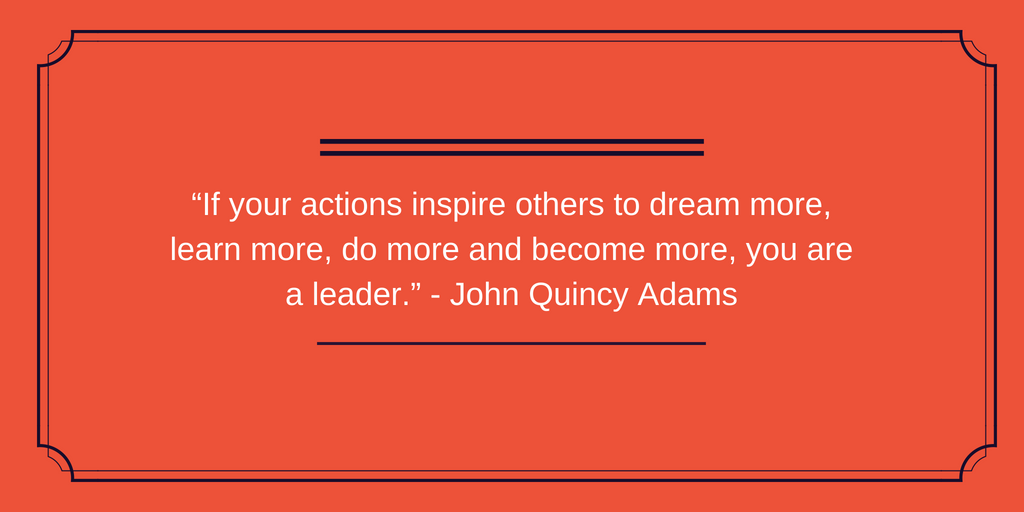
August 6, 2018
- The most effective leaders ‘show up’ with these 4 things every day. Every leader or aspiring leader wants to be an effective leader. They want to know what they have to do or who they have to be to lead with impact and influence in order to have the voice and provide the value they envision.
- ICYMI- IT modernization: winning staff buy-in matters as much as what technology you choose. An estimated 75 percent of workplace change initiatives fail, often because leadership has neglected to get the organization to buy in.
- Know your worth, and then ask for it. Take the time to learn how to shape thinking on knowing your worth. Pricing consultant Casey Brown shares helpful stories and learnings that can help you better communicate your value and get paid for your excellence.
- What makes a leader? “A study published Thursday suggests that people who end up in leadership roles of various sorts all share one key trait: Leaders make decisions for a group in the same way that they make decisions for themselves. They don't change their decision-making behavior, even when other people's welfare is at stake. That may come as a bit of surprise, given that most lists of key leadership qualities focus on things like charisma and communication skills.
- How leadership hacks can fast-track your performance. To accomplish more, leaders need to hack their current approach with new ways of thinking and influencing that will enable them to do more with less.
Have you created leadership resources you’d like to share? Send them over to [email protected].
Scroll down to subscribe and get our Fitting 5 resources straight to your mailbox!
July 23,2018
- Overcome these 5 biases to be a better leader. As leaders, one of our core responsibilities is to find and develop top talent. To first and foremost, get the people right. We can’t accomplish great things without great people. It simply will not happen.
- Three ways to help move your boss forward. George Couros recently pondered on Twitter the following question: “You are an educator and an administrator needs growth. How would you suggest to "lead up"? How do you help them get better even though they are "the boss"?” The quickest way to a destination is often a straight line. As an administrator, I would often say to my staff, “I can’t solve a problem I don’t know exists.” Similar to teachers, administrators don’t go out of their way to do a lousy job so sometimes leading them to what you need is what works best.
- Learner-centered educator and leadership competencies- interview with Rebecca Wolfe. This podcast provides a “how to” to distinguish learner-centered from the dominant school-centered paradigm. In addition, the participants discuss why is it important for educators to specifically and comprehensively identify a set of competencies for educators and leaders that focus on a learner-centered environment.
- Leadership, change, and the art of adaptation. “As a CEO, I’ve learned that one thing is certain (besides death and taxes) -- change. It’s a universal truth for tech leaders because all of us are either in a position of driving disruption or attempting to protect the status quo in a changing environment. And, to complicate matters further, much of what happens around us is out of our control. However, the good news is that so much is also in our control. We have the power to build a great team, equip them with the right tools and prepare them to deal with an environment that is continuously changing.
- Top 10 leadership hacks for 2018:
July 2, 2018
- HGSE introduces new certificate in early education leadership. “Given that only two in 10 children have access to a high-quality early education setting in the U.S., CEEL, through interactive and case-based materials grounded in scientific insights, is designed to equip early education leaders with the core knowledge and tools to navigate the decisions, challenges, and opportunities associated with quality improvement,” said Nonie Lesaux, academic dean and Juliana W. and William Foss Thompson Professor of Education and Society at the Harvard Graduate School of Education and co-director of the Saul Zaentz Early Education Initiative.
- K-12 leaders just ‘beginning to scratch the surface’ on what they can do with data. One of the most pressing issues district technology leaders face today is figuring out what to do with all the data they now can access, says Chad Stevens, K-12 strategy lead at Amazon Web Services (AWS). “Schools, states — they have a lot of applications, right? If you think about it, they’re really not ever going to have less data than they have today,” Stevens tells EdScoop TV. “So, making all that data talk and making it to where you can make actionable decisions about it is critical.”
- We’ve been going about learning new skills all wrong. “The problem is that we’re all focused on knowledge acquisition,” says Lanik, author of The Leader Habit: Master the Skills You Need to Lead In Just Minutes a Day. “When people in an organization need to get better at a skill like delegating or public speaking, we say, ‘Here, read this book or take this class.’ It turns out that’s not an effective way to learn skills, and we forget quickly.”
- PCC leadership organization earns award. Each year, the nation’s largest leadership honor society recognizes five chapters for making a significant impact on their members and communities. As one of this year’s Distinguished Chapter Award honorees, PCC’s Sigma Alpha Pi chapter of NSLS received $700 in recognition of its outstanding chapter development, membership support, leadership training, and active engagement in campus and community volunteerism.
- One Ohio school’s quest to rethink bad behavior. Many of Ohio Avenue’s children have brushed against violence and other traumatic experiences in their short lives—abuse and neglect, a household member addicted to drugs, homelessness, to name a few. At schools like this, a small dispute can easily turn into a scuffle that leads to an administrator or school-safety officer corralling the kids involved, if not suspending them. But Ohio Avenue is trying to find another way: Every adult in the building has received training on how children respond to trauma.
